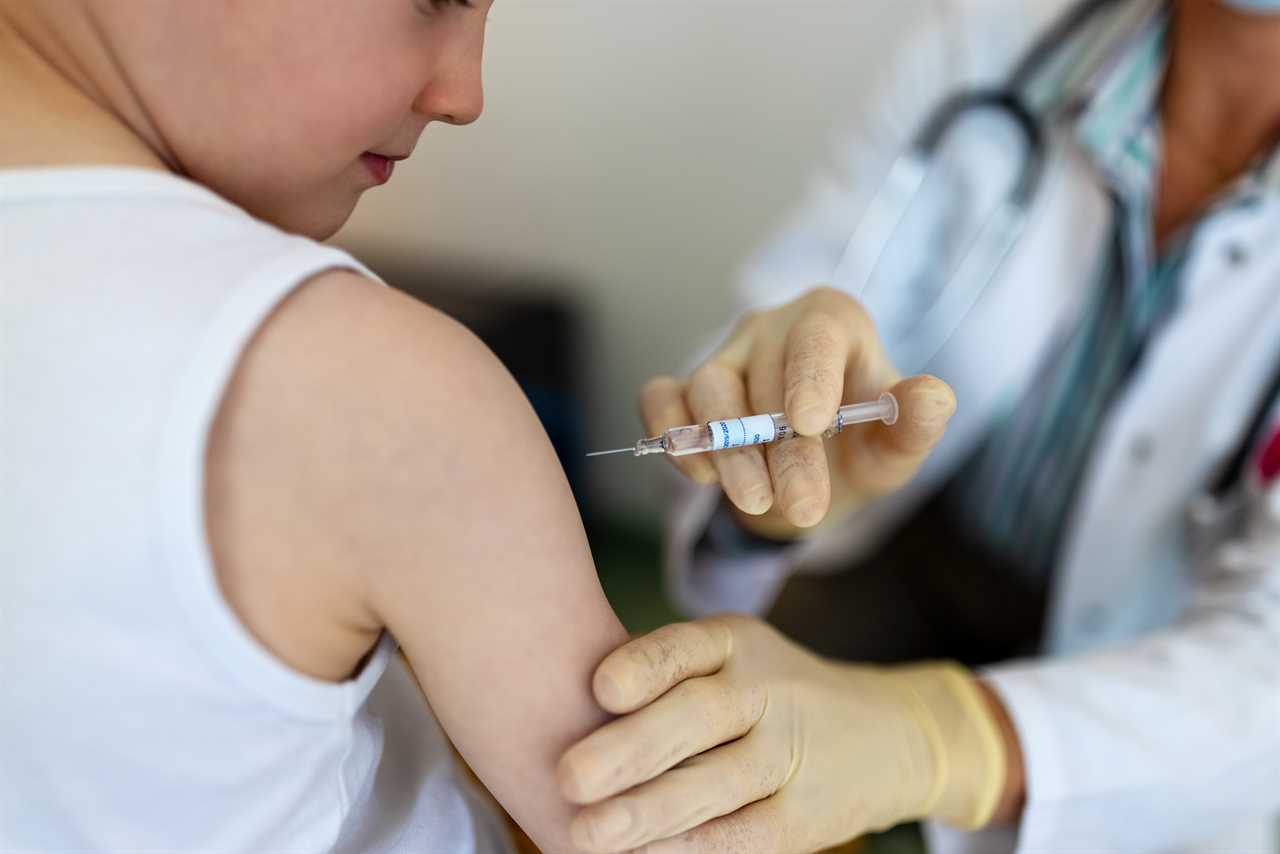KIDS as young as five will finally be offered the Covid vaccine.
The watchdog approved the jab on Wednesday afternoon, leaving parents up and down the UK with questions.

Given the Covid outbreak is largely under control – with most restrictions now dropped – many will be wondering why vaccines are being offered to kids so late in the game.
It is thought that more than 85 per cent of children aged five to 11 have already had coronavirus.
The Joint Committee for Vaccination and Immunisation (JCVI) said the aim of vaccinating kids is to “future proof” against potential new variants.
Here, we answer your burning questions about the jabs – is it mandatory? How does my child get it? Most importantly, is it safe?
When and where will the vaccine be available?
The jab will be available from April, with few details about how the rollout will work.
A decision has not yet been taken on whether the jab will be rolled out to younger children via places such as GP surgeries, vaccine clinics, or schools.
Parents should wait to be contacted before bringing their child forward, or for more information on exactly when this rollout will begin.
What jabs will be offered?
The JCVI has advised kids should get two 10mcg doses of the Pfizer-BioNTech paediatric vaccine.
The dose is a third of the strength of an adult dose. Research showed that the immune response is as good as a full dose for 16 to 25-year-olds.
The two doses should be given with an interval of at least 12 weeks between doses.
Is it mandatory?
As with adults, vaccines for children won’t be mandatory.
The JCVI has also recommended a “non-urgent” offer of the jabs to five to 11 year-olds in England.
This is suspected to be because the UK is not in a Covid crisis as it was when jabs became available to adults, and an emergency rollout began.
Health Secretary Sajid Javid said: “It is something that’s there as an option for parents and they should decide for themselves whether it’s an offer that they want to take up, and all the information they need would be made available for them.”
How effective is the jab?
The trial data showed that children who got the dose regimen that will be on offer had efficacy of more than 90 per cent.
Why are children now being offered the jab?
The main purpose of Covid vaccination in the adult population is to drive down hospitalisations and deaths.
Even though very few get severely sick with the virus, the JCVI has decided that there are benefits to children as young as five getting vaccinated.
It can protect the few that are at risk of severe disease, reduce the burden of long Covid, and help reduce disruption to education by suppressing transmission.
It would also be useful against future variants that have the potential to cause new outbreaks.
Dr Ferguson, Associate Professor of Immunology, University of Cambridge, said: “We know that vaccination on top of prior infection generates an increased breadth of neutralising antibodies, which will very likely help to protect from future variants, should they arise and circulate in the UK.”
There are also children who have not yet had Covid and therefore have no natural immunity.
What took so long?
The JCVI have been debating vaccinating kids for months while other countries have steamed ahead.
Dr Liz Whittaker, Senior Clinical Lecturer in Paediatric Infectious Diseases and Immunology, Imperial College London, said: “I know that many have been impatient to get to this point.
“But as a parent and a paediatrician I am pleased that the JCVI has followed an evidence based approach rather than being swayed by public and other pressures.”
Vaccinating children now will not have an impact on the Omicron wave, which is already in retreat.
Instead, Dr David Elliman, Consultant Paediatrician, Great Ormond Street Hospital, said “the benefits apply predominantly to any future waves of Covid-19”.
“If there are future waves, but they are very mild the benefits are likely to be small, whereas, if a severe variant arises, there could be significant benefits,” he said.
Modelling by the JCVI showed that in a serious future wave, 98 hospitalisations could be prevented for every million children vaccinated.
If a future wave is less severe then 17 hospital admissions could be prevented per million kids.
How safe is it?
The side effects of the jabs in trials were mild, just like in adults. They included a headache, fever and muscle aches.
Around one in 10 children needed time off school due to the side effects.
Dr Peter English, past Chair of the BMA Public Health Medicine Committee, said: “Many other countries have been vaccinating children aged five upwards for months now; the evidence of safety is overwhelming.”
Dr Ferguson said the main safety concern about the vaccine in young people has been myocarditis – heart inflammation.
Tight monitoring of this side effect in the US rollout has shown only 12 incidents in more than 8.6 million doses, all of which were not severe.
Dr Ferguson said: “This vaccine therefore appears extremely safe in this age group, both from the clinical trials and from the real-world data from the rollout in the USA.”
Does my child need the jab if they’ve had Covid?
As explained above, the jab could offer protection against new Covid variants that emerge that natural protection does not.
What do scientists think?
Some experts say the decision from the JCVI is long awaited.
Dr Whittaker said: “I am glad to see this decision from JCVI, I think it is the right decision.”
But some experts appear to be unconvinced that vaccinating children is worthwhile, based on the risk-benefit balance, while others suggest it is too late.
You can read the full statement from the JCVI on why they recommend five to 11-year-olds get Covid vaccines here.






